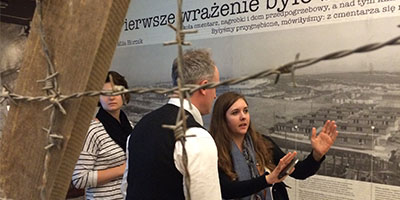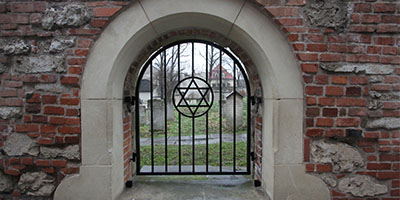
- About AUP
- History of AUP
- Mission & Core Values
- Vision and Leadership
- AUP Recognition
- Alumni Success
- Campus Development
- Arts at AUP
- Policies & Guidelines
- Academics
- Undergraduate
- Graduate Programs
- MA in Diplomacy and International Law
- MA in Global Communications
- MSc in Human Rights and Data Science
- MA in International Affairs
- MA in International Affairs, Conflict Resolution, and Civil Society Development
- MSc in International Management
- MSc in Strategic Brand Management
- Find Your Thesis Advisor
- Previous Programs
- Cultural Program
- Faculty
- Summer School
- Research Centers
- The Center for Critical Democracy Studies
- Upcoming Events
- Research Projects
- Fellows’ Publications
- Publishing
- Curriculum
- Community
- Partnerships
- Visiting Scholars
- CCDS Highlights
- Atelier de Théorie Politique – Paris
- Critical Theory 101: Future Directions and New Challenges
- Martti Koskenniemi on “The Law of International Society: A Road not Taken”
- Academic Freedom Symposium
- Tocqueville Colloque 2023
- Violent Turns Conference
- Degenerations of Democracy
- DEMOS21 Inaugural Event
- What Demos for the 21st Century?
- The Paris Centennial Conference
- Justice Stephen Breyer
- Civic Jazz - The Launch of the Center
- Past Events
- FR
- The Center for Writers and Translators
- The George and Irina Schaeffer Center for the Study of Genocide, Human Rights and Conflict Prevention
- The Joy and Edward Frieman Environmental Science Center
- The Center for Media, Communication & Global Change
- The Center for Critical Democracy Studies
- Departments
- Academic Resources
- Academic Affairs
- Academic Calendar
- Academic Resource Center
- Library
- Registrar's Office
- Teaching and Learning Center
- Accessibility & Accommodation Services
- AI@AUP: A Campus-Level Initiative
- Quai D'Orsay Learning Commons
- Paris as Classroom
- ACE
- Admissions
- Student Life
- Campus
- Student Leadership & Involvement
- Paris
- Support Services
- Student Life Help Desk
- Student Accounting Services
- Student Immigration Services
- Student Grievance Procedure
- Diversity and Inclusion
- Health & Well-being
- Digital Student Handbook
- News
- Events
- AUP Giving
- Housing Offer for 2025-2026
- IT Services
- Alumni
- About AUP
- History of AUP
- Mission & Core Values
- Vision and Leadership
- AUP Recognition
- Alumni Success
- Campus Development
- Arts at AUP
- Policies & Guidelines
- Academics
- Undergraduate
- Graduate Programs
- MA in Diplomacy and International Law
- MA in Global Communications
- MSc in Human Rights and Data Science
- MA in International Affairs
- MA in International Affairs, Conflict Resolution, and Civil Society Development
- MSc in International Management
- MSc in Strategic Brand Management
- Find Your Thesis Advisor
- Previous Programs
- Cultural Program
- Faculty
- Summer School
- Research Centers
- The Center for Critical Democracy Studies
- Upcoming Events
- Research Projects
- Fellows’ Publications
- Publishing
- Curriculum
- Community
- Partnerships
- Visiting Scholars
- CCDS Highlights
- Atelier de Théorie Politique – Paris
- Critical Theory 101: Future Directions and New Challenges
- Martti Koskenniemi on “The Law of International Society: A Road not Taken”
- Academic Freedom Symposium
- Tocqueville Colloque 2023
- Violent Turns Conference
- Degenerations of Democracy
- DEMOS21 Inaugural Event
- What Demos for the 21st Century?
- The Paris Centennial Conference
- Justice Stephen Breyer
- Civic Jazz - The Launch of the Center
- Past Events
- FR
- The Center for Writers and Translators
- The George and Irina Schaeffer Center for the Study of Genocide, Human Rights and Conflict Prevention
- The Joy and Edward Frieman Environmental Science Center
- The Center for Media, Communication & Global Change
- The Center for Critical Democracy Studies
- Departments
- Academic Resources
- Academic Affairs
- Academic Calendar
- Academic Resource Center
- Library
- Registrar's Office
- Teaching and Learning Center
- Accessibility & Accommodation Services
- AI@AUP: A Campus-Level Initiative
- Quai D'Orsay Learning Commons
- Paris as Classroom
- ACE
- Admissions
- Student Life
- Campus
- Student Leadership & Involvement
- Paris
- Support Services
- Student Life Help Desk
- Student Accounting Services
- Student Immigration Services
- Student Grievance Procedure
- Diversity and Inclusion
- Health & Well-being
- Digital Student Handbook
- News
- Events
- AUP Giving
- Housing Offer for 2025-2026
- IT Services
- Alumni
Genocide and Memory Studies Institute
Sponsored in part with generous help from The George and Irina Schaeffer Center for the Study of Genocide, Human Rights, and Conflict Prevention this unique summer institute offers students the opportunity to examine genocide, memorialization and collective memory making through different interdisciplinary lenses. During the June 3-week summer session, students can take Professor Brian Schiff’s course Shoah and Social Theory and/or Professor Charles Talcott’s The Museum as Medium. Professor Schiff’s course will focus on the psychological and sociological underpinnings of genocide as well as its legal definition through an exploration of the Shoah. Professor Talcott’s course looks at how museums help to construct national, cultural, and community identities with a special consideration of the ways museums create narratives of genocide.
Both courses will hold classes in Paris including special events and talks from invited speakers during the first two weeks of the summer session. Then, institute students will embark on a practical exploration of the ideas explored in their courses with a joint 5-day long trip to Poland led by Professors Schiff and Talcott. Students will spend time in Warsaw and Krakow, and the trip will include visits to the Auschwitz-Birkenau Memorial and Museum, Muzeum Treblinka, and the POLIN Museum of the History of Polish Jews among other sites of memorialization.
Please note that both courses include an additional course fee and that because of the practicum visit to Poland, students who enroll Memory and Genocide Institute courses cannot enroll in other June 3-week courses or 6-week courses.
COURSES
The Museum as Medium
In the Age of the Enlightenment, the classification and organization of facts and objects gave birth to the concept of the modern 'museum'. This course investigates the construction and communication of national, cultural, and community identities through the medium of the contemporary museum, where material culture is exhibited to express narratives that evoke particular definitions and interpretations of history and values. Please note that an additional fee will be charged for this course.
Shoah and Social Theory
More than 70 years after the annihilation of European Jewry, the Shoah remains a focal point of research and reflection on the problem of genocide. Although this course investigates the history of the Shoah, we concentrate on the social dynamics (ideological, structural, and situational) that made the Shoah possible. Bringing the tools of the social sciences to bear on the motives of, what Rothberg (2019) calls “implicated subjects,” students will grapple with classic and contemporary theories of violent action and their application to the historical circumstances of the genocide of European Jewry. How can we better understand the development of genocidal violence? What can the social sciences contribute to this understanding?

